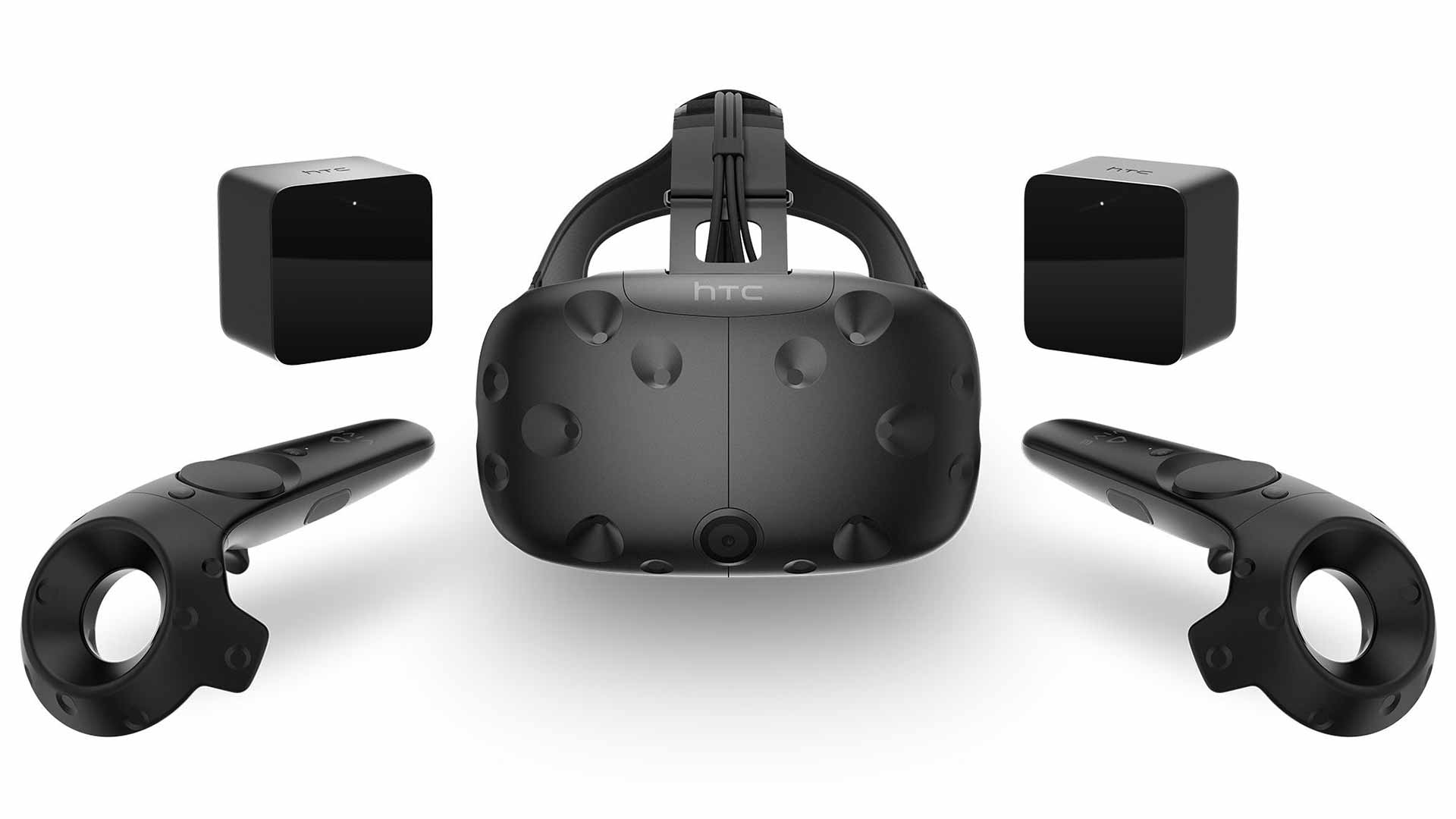HTC Vive VR headset gets a massive price cut worldwide
The price war is hotting up

HTC has announced that it’s dropping the price of its HTC Vive headset worldwide. The headset will now retail for $599 (£599 / AU$999) as opposed to its previous price of $799 (£759 / AU$1399).
In the UK that amounts to a 20% price cut, in Australia it's closer to 30%, and in the US it's 25%. Those are pretty sizeable price cuts across the board.
VR seems to be suffering from a pretty severe chicken and egg problem right now. Developers are wary of spending too much money developing for VR when so few people currently own headsets, and this lack of games means people are hesitant to invest in hardware when it’s expensive.
It’s this latter point that the price cut is addressing. By making the hardware cheaper, there’s less pressure to have an enormous amount of games available, allowing the install base to increase and make development more attractive. HTC’s move follows Oculus, which reduced the price of the Oculus Rift earlier this year.
When I asked HTC Vive’s European General Manager, Paul Brown, about the price drop, he confirmed that the it was to drive sales rather than as a response to declining manufacturing costs. “We just want to try and build on that first year sales momentum. We’ve had good growth, we’re very happy, but you want to continue to push that,” he explained.
He was also keen to reassure potential buyers that this price drop doesn’t mean that there is new hardware on the horizon that’s going to make the current product seem obsolete anytime soon, especially since the company was spotted showing off new controllers last year.
“Yes there’s obviously evolution of technology, but the Vive is the best VR platform out there...so for the foreseeable future it’s here to stay and I don’t think there should be any concern about that at all,” said Brown.
Get daily insight, inspiration and deals in your inbox
Sign up for breaking news, reviews, opinion, top tech deals, and more.
"Content is king"
Of course, the other side of the chicken and egg problem is content, and Brown was eager to boast about the amount of games already out on the platform, and on the way in the future.
When I asked for his personal favorites Brown extolled the virtues of both Superhot VR and MakeVR, but he was also keen to point out the big upcoming games for the platform which include Fallout VR and Doom VFR.
But when VR has to be seen to be fully believed, how does Brown think mainstream VR adoption will happen?
“I think it’s word of mouth; it’s going and trying it at your friends house. We do have demos in retail, I think arcades are very interesting...I’m sure you’ve started to see there are pop-up arcades in pubs and pop-ups in cinemas...executions in VR where the mainstream consumer is starting to go, ‘Wow that’s really cool, that’s really amazing, where do I get it or what do I do?’”
An example of the latter point came recently in the UK theme park Thorpe Park, where Vive headsets were used as part of an interactive ride.
Healthy competition
Although HTC spoke as though this decision was made in isolation, it’s hard not to see the price drop as a reaction to the Oculus Rift’s. The latter headset has always had the price advantage over the Vive, but with the addition of Touch controllers, the gap in functionality is now narrower than it’s ever been before.
The Vive having room-scale tracking as standard (as opposed to needing to purchase an additional sensor as you do with the Rift) means that it still has the slight technological edge, but it’s clearly been spooked by being so heftily undercut on price by its closest competitor.
In other words, healthy competition in the VR space is working wonders for making the technology more affordable for everyone. Long may it continue.
- Gamescom is Europe's largest annual gaming event, stuffed full of the latest and greatest games, consoles, and gaming hardware. TechRadar is reporting live from Cologne to bring you the very latest from the show floor. Head to our dedicated Gamescom 2017 hub to see all the latest news, along with TechRadar's world-class analysis and buying advice about the next year in gaming
Jon Porter is the ex-Home Technology Writer for TechRadar. He has also previously written for Practical Photoshop, Trusted Reviews, Inside Higher Ed, Al Bawaba, Gizmodo UK, Genetic Literacy Project, Via Satellite, Real Homes and Plant Services Magazine, and you can now find him writing for The Verge.
